This year almost became the first since 2009 that the Red Room went without its signature Stage Time and Wine open mic event. After four years at the Taiwan Air Force Innovation Base, the nonprofit arts and culture organization had to dial things back after losing its space at the end of last year.
After 11 months of vagrancy, the organizers celebrated on Dec. 5 the opening of their new home at Red Room Rendezvous, a for-profit vegan restaurant and bar with a gallery and performance space. And tomorrow night, Stage Time and Wine will make its long awaited return, recurring every third Saturday of the month.
Gone are the volunteers who help wash dishes and the bring-your-own-wine ethos as there’s now a full menu and kitchen staff, but Manav Mehta, who has been involved with Red Room since its inception and now runs the restaurant bar, says the spirit of the event will stay the same. As usual, all types of expression are welcome, from spoken word to movement to music and visual arts.
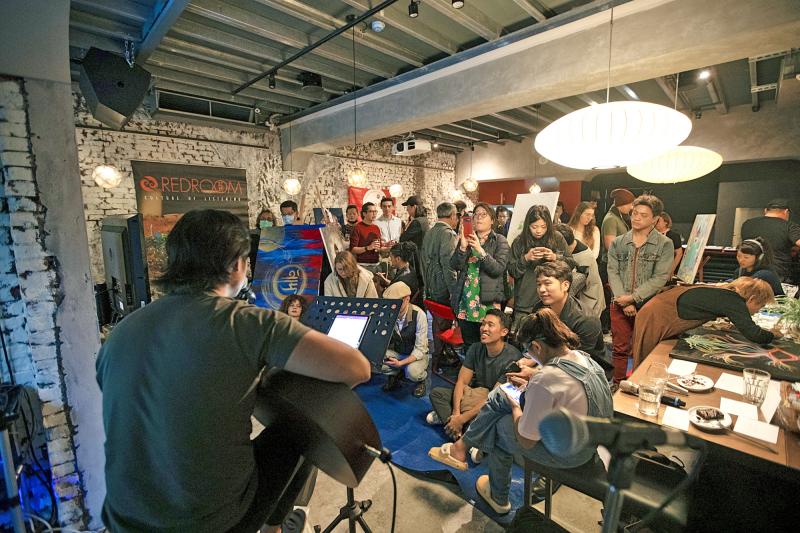
Photo courtesy of Red Room
“I want to emphasize that Stage Time and Wine is an intimate place of sharing,” Mehta says. “We don’t want it to be a talent show. Instead of ‘You’ve got five minutes to show off what you got,’ it should be ‘You get five minutes to share and we listen.’ The culture of listening is still part of the [Red Room] brand.”
Since the first edition was launched in November 2009, Mehta says they’ve only missed at most five Saturdays — due to typhoons — before this year.
“Now we have a home, I know I can consistently run it and we never have to make any compromise,” he says. “Even if we get a major business day, if it’s the third Saturday — I’ll say, sorry, Stage Time is more important.”
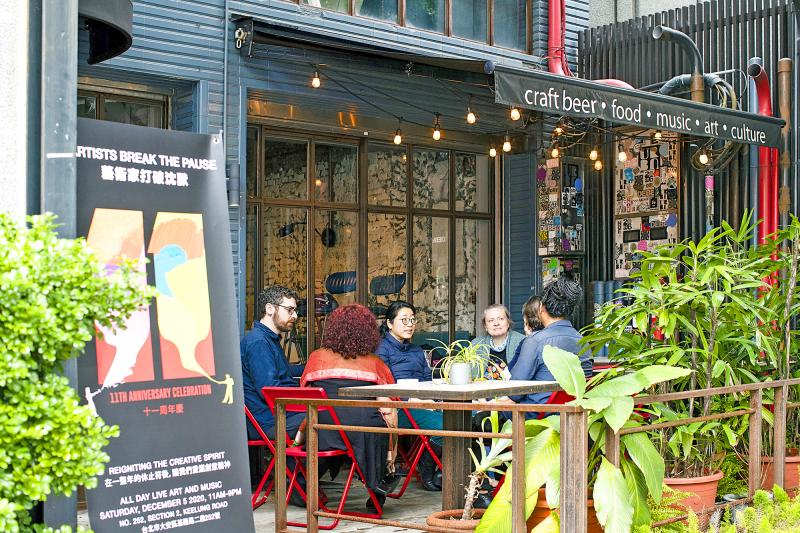
Photo courtesy of Red Room
Mehta had left Taiwan for other opportunities last year, but after returning due to COVID-19, he started running musical jams at vegetarian cafe URBN Culture, which used to occupy Red Room Rendezvous. The former owner was looking to move on, and after hearing that Mehta wanted to open something, she offered him the space.
“I was thinking of starting it under a different name, then I thought: ‘Why am I racking my brain to rebuild something that we’ve already put together?’ We can use the same brand,” he says.
While keeping the non-profit association intact, Mehta proposed launching a new for-profit vehicle under the Red Room tag, continuing to create intimate events that celebrate the arts while being able to pay for its own space.
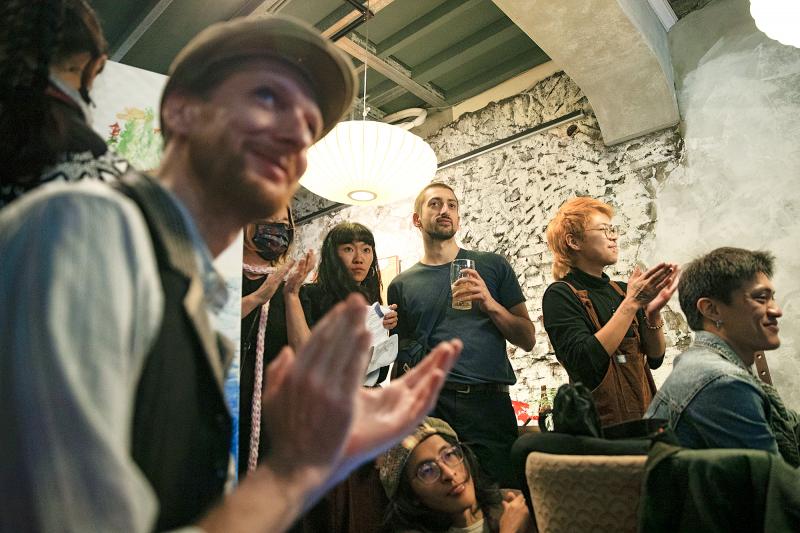
Photo courtesy of Red Room
“If you’re creating platforms, you are offering support and nourishing others,” Mehta says. “But we have to make sure we can [support ourselves] first, and this is the first time we’re actually doing it.”
The non-profit, Mehta adds, is its own branch of the Red Room run by the board, and they don’t have financial ties. The association will focus on running art-related, family-friendly programs.
The restaurant offers an eclectic vegan menu (except for the grilled cheese), which was developed in partnership with Sprout restaurant (初芽) in Tianmu and vegan caterer Hanseasian, with R&D Cocktail Lab helping create the drinks.
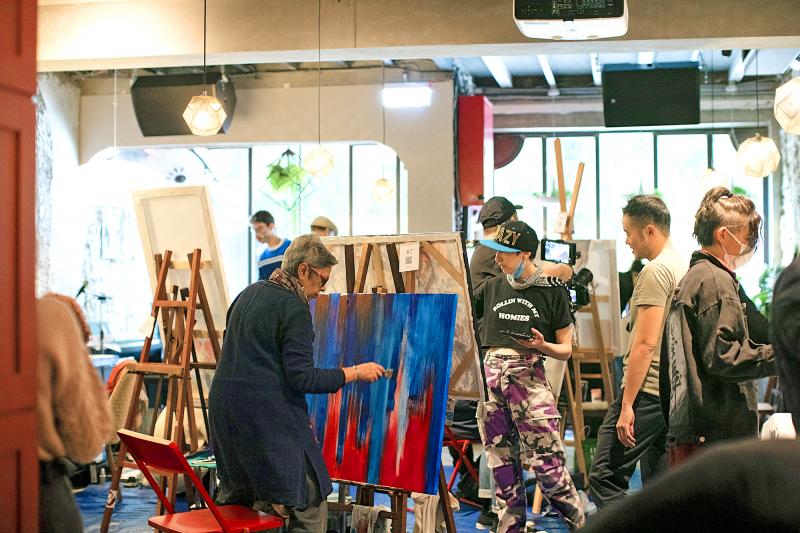
Photo courtesy of Red Room
“Red Room’s voice is the program, the network, the space, the vibe,” Mehta says.
The key lies in curation, cultivation and cross pollination, as Mehta hopes it becomes even more of a venue where foreigners and locals can mix.
“Now that there’s a restaurant bar, there’s less fear that Red Room is just for foreigners,” he says, adding that many locals walk in for the food and become interested in the programs.
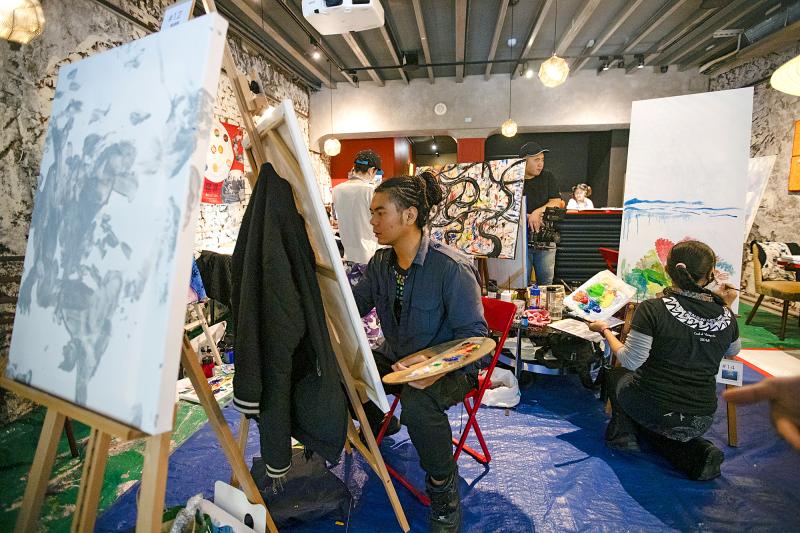
Photo courtesy of Red Room
“Our current exhibit features a British man [Tom Rook] drawing all of Taiwan in detail and Taiwanese are buying the work. This kind of exchange is what we want.”

The unexpected collapse of the recall campaigns is being viewed through many lenses, most of them skewed and self-absorbed. The international media unsurprisingly focuses on what they perceive as the message that Taiwanese voters were sending in the failure of the mass recall, especially to China, the US and to friendly Western nations. This made some sense prior to early last month. One of the main arguments used by recall campaigners for recalling Chinese Nationalist Party (KMT) lawmakers was that they were too pro-China, and by extension not to be trusted with defending the nation. Also by extension, that argument could be

Aug. 4 to Aug. 10 When Coca-Cola finally pushed its way into Taiwan’s market in 1968, it allegedly vowed to wipe out its major domestic rival Hey Song within five years. But Hey Song, which began as a manual operation in a family cow shed in 1925, had proven its resilience, surviving numerous setbacks — including the loss of autonomy and nearly all its assets due to the Japanese colonial government’s wartime economic policy. By the 1960s, Hey Song had risen to the top of Taiwan’s beverage industry. This success was driven not only by president Chang Wen-chi’s

Last week, on the heels of the recall election that turned out so badly for Taiwan, came the news that US President Donald Trump had blocked the transit of President William Lai (賴清德) through the US on his way to Latin America. A few days later the international media reported that in June a scheduled visit by Minister of National Defense Wellington Koo (顧立雄) for high level meetings was canceled by the US after China’s President Xi Jinping (習近平) asked Trump to curb US engagement with Taiwan during a June phone call. The cancellation of Lai’s transit was a gaudy

The centuries-old fiery Chinese spirit baijiu (白酒), long associated with business dinners, is being reshaped to appeal to younger generations as its makers adapt to changing times. Mostly distilled from sorghum, the clear but pungent liquor contains as much as 60 percent alcohol. It’s the usual choice for toasts of gan bei (乾杯), the Chinese expression for bottoms up, and raucous drinking games. “If you like to drink spirits and you’ve never had baijiu, it’s kind of like eating noodles but you’ve never had spaghetti,” said Jim Boyce, a Canadian writer and wine expert who founded World Baijiu Day a decade